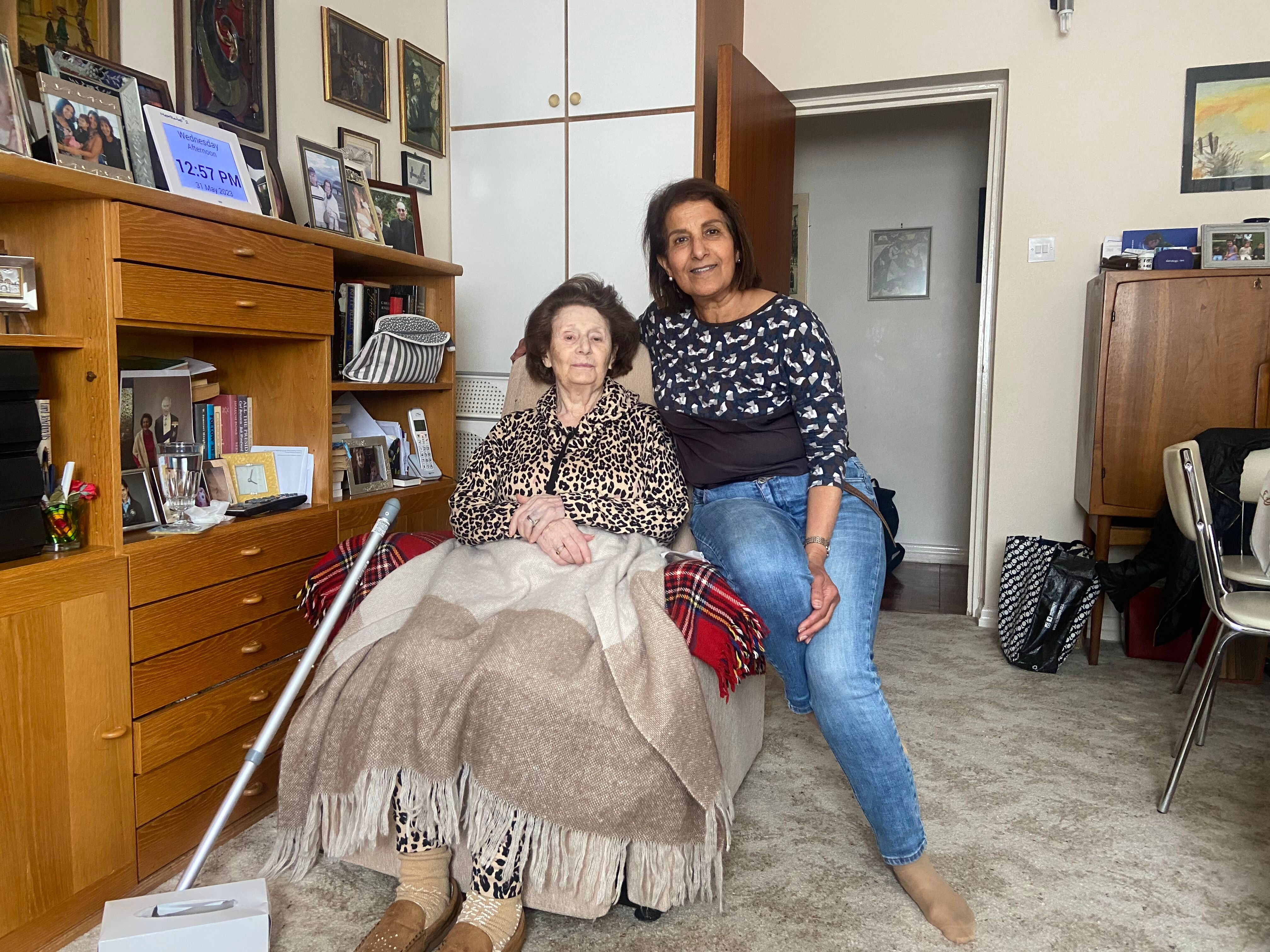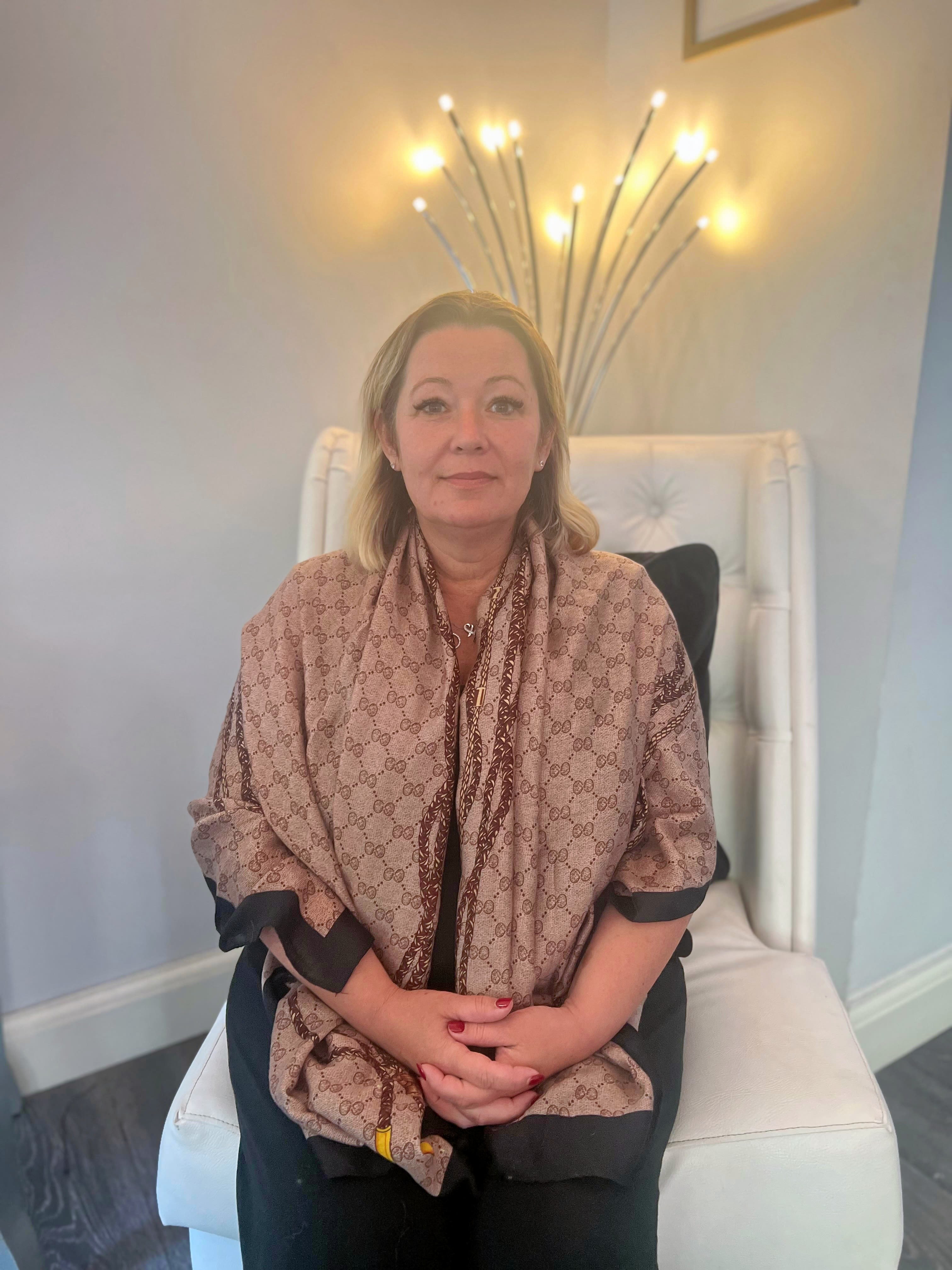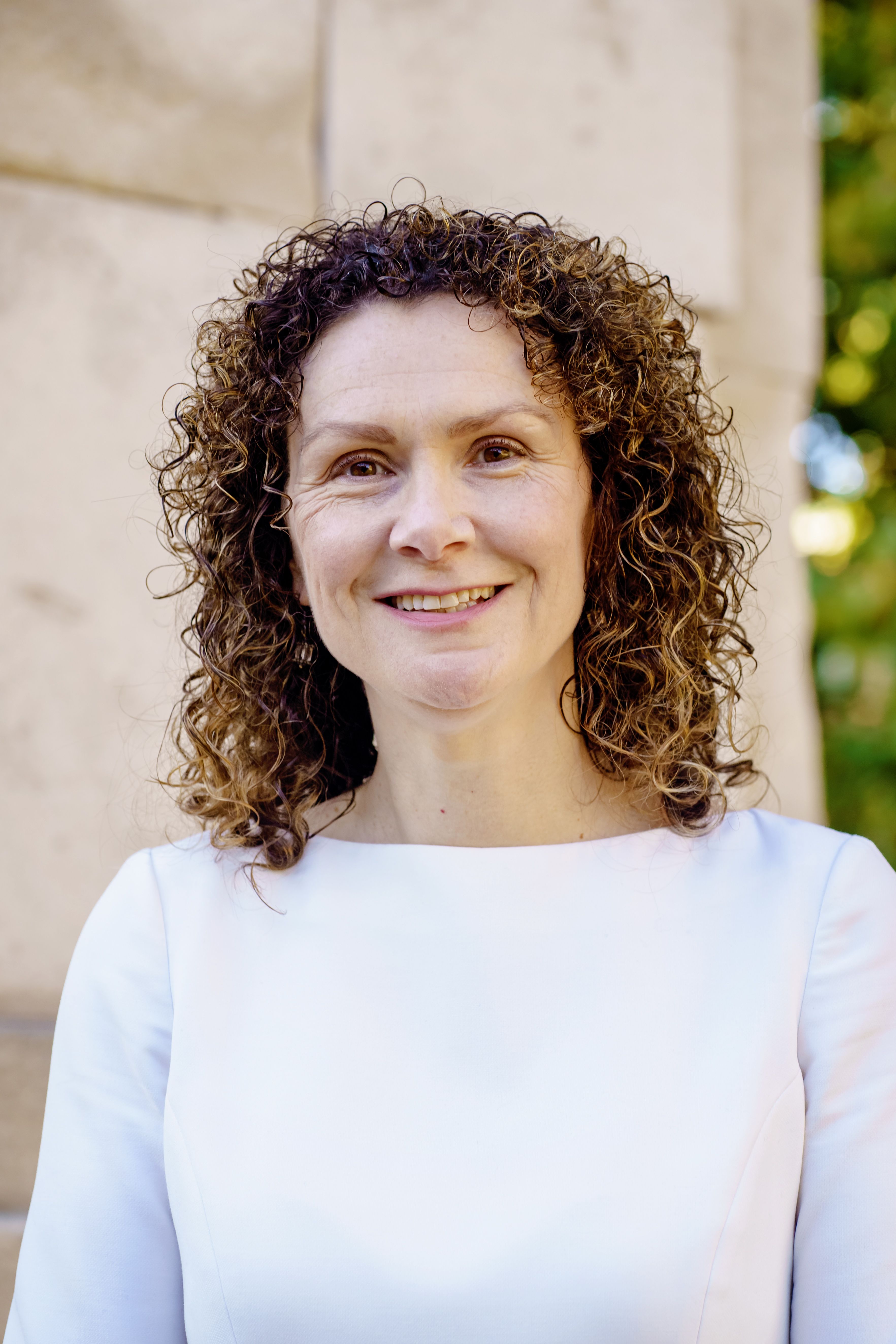Carer's leave: The hidden heroes juggling work and care

Introduction
It is no secret that unpaid carers are saving the government vast amounts of money every year. In fact, the cost of unpaid care in England and Wales in 2021 was £162 billion, which is more than the entire annual NHS budget in England for the same time frame.
And yet, within this demographic of carers, there is a compound problem; that problem being that many individuals are juggling work while caring, and they are struggling.
Speaking with two carers - one who is employed and the other self-employed - the complexity of this issue becomes apparent. Their stories are set against the backdrop of the Carer’s Leave Act, which has just passed through Parliament and will provide carers in employment with five days of unpaid leave a year.
Introduction
Hearing from the MP who first introduced the Bill, alongside two care industry professionals and the carers themselves, the scope, eligibility and limitations of the Carer’s Leave Act will be broken down for those wondering how it could benefit them.
The voices of Rachel and Karina, both unpaid carers, play an invaluable role in humanising the difficulties faced by those in this demographic. As Karina says herself:
“Sometimes, we just need to feel that we’re not the only people who do this.”
Rachel's story

Tucked away on a quiet street in Barnet, North London, Rachel Rees sits on the sofa in her mother-in-law's flat. The rooms are decorated with a mixture of family keepsakes and ornaments, while framed photographs adorn windowsills and mantle pieces. A portrait of a young woman, dark haired and doe-eyed, takes pride of place on the wall.
Rachel is a 62-year-old nursery practitioner. She is also a carer for her 93-year-old mother-in-law, Donna, who has been diagnosed with dementia.
"I know things are not going to get better, they’re going to get worse. It worries me."
Donna receives visits from a carer four times a day, but outside of these hours, Rachel sees to her needs. Unsurprisingly, this can prove incredibly difficult to balance alongside her job.
“It can be very stressful because even though we have a carer for her, it doesn’t change the fact that if anything happens, I have to be in contact,” Rachel says.
To ensure the safety of the children, Rachel’s employer has a strict rule that staff cannot use their phones during lesson time. This means her breaks are often spent checking on Donna, arranging appointments or following up prescriptions.
“If I have to make a phone call to the doctor, I have to use my lunch break or my tea break. It sounds stupid to say I am counting the minutes, but I am. When they answer, they say the GP will phone you later, but I can’t take a phone call later as I am at work. That’s what I find really hard.”
Rachel explains that days off provide little rest too, with emergencies relating to Donna’s health often meaning she is on call 24/7. Asked how she copes, she offers a nonchalant response: “I think I'm a juggler. That’s it. I just do things, I don’t think about them. Maybe that’s my survival method. I don’t know.”
But as conversation turns to the future, Rachel's tone softens, her stoicism waivering just long enough to reveal she is concerned about what is to come:
“I know things are not going to get better, they’re going to get worse. It worries me, what will happen. So I try not to think that far ahead, I just think about today. Tomorrow is another day.”
Rachel's story: Accessing support
Thankfully for Rachel, she has been able to benefit from the assistance of a charity called the Association of Jewish Refugees (AJR). The AJR is a national charity supporting Holocaust survivors and refugees living in Great Britain, and as Donna was forced to flee across Europe as a child to escape Nazi persecution, they were able to help her.
Rachel explains how valuable this external support system has been in her life, saying: "They are a fantastic organisation. I receive emails asking me ‘how are you?’ Do you know how special it is for someone to ask how you are, because everyone usually asks about the person you are caring for?"
Fran Horwich, Head of Volunteer Services at the AJR, outlines some of the resources they offer, from online mindfulness and exercise classes, to social worker visits and financial assistance for those eligible. Formerly a carer for her late husband, Fran explains why there is a desperate need to support carers as they juggle their many responsibilities.
Karina's story

When Karina Roberts married her partner last year, she envisaged a life of spontaneous trips, romantic date nights and quality time with the man she loved. But 12 months on and she has found herself caring for an elderly relative while working nearly full time, meaning her hopes of blissful married life have been replaced by physical exhaustion and what she describes as feeling “shut off” from those around her.
Karina, 49, who lives in Surrey, provides care for her great aunt, who is hard of hearing, partially blind and bed bound. Prior to this year, Karina’s mother was able to help with her aunt’s care, but since her mum moved abroad, the responsibility has fallen entirely on Karina to support her elderly relative’s complex needs. Living and working in a different town, Karina makes the 50-mile round trip several times a week to assist between paid care visits. She does this while running her own retail business, with a number of branches in the local town.
“I'm lucky that I'm still working and able to do this job, but it does take a toll on my family and on my relationships. I feel physically exhausted, because your focus is so much on their needs. You don't ever think about your own needs, you just put them first,” she says.
Hair slicked and blonde, with feathery eyelashes and a scarf draped over her shoulders, Karina perches on a grey armchair in her living room as a scented candle burns nearby. To anyone unknowing of her situation, she appears glamorous and calm, almost impassive.
But Karina is really struggling. So much so, her career aspirations have been impacted from juggling work and caring responsibilities. She says how she would like to apply for employed roles, but fears her caring duties would make working for anyone other than herself impossible.
“It actually puts a massive strain on you because you think: I could only ever get a job where I can work from home, or that could be done remotely, and I'm going to have to work around the days where I’m caring.”
"We all talk about well-being and mental health, but it feels like there's no support there."
She continues by drawing attention to the unpredictability of care-giving and how any role with set hours becomes infeasible when your dependant may have an urgent care need at any time:
“When she rings me at 6:30 in the morning to say she needs something, I always pick up the phone and I'm all joyful. And then she says ‘I haven’t woken you, have I?’ and of course, I say 'no', but actually she did wake me up. Or when she rings me at 11 o’clock at night and asks ‘you’re not in bed are you?' I’ll say ‘of course not,’ but actually I was asleep.
"How could I keep up that level of support while being employed? I just couldn’t. We all talk about well-being and mental health, but it feels like there's no support there. You just get frustrated with the system that is in place sometimes.”
The Carer's Leave Act
Despite Karina’s despondency, she is not the only person calling for the system to change. In fact, MP Wendy Chamberlain, deputy leader of the Scottish Liberal Democrats and representative of North East Fife, has recently spearheaded a new Private Member’s Bill aimed at supporting unpaid carers who are also juggling work. Known as the Carer’s Leave Bill, the legislation passed through all stages of Parliament and received Royal Assent in May, just in time for National Carers Week (5-11 June 2023). Now the Carer's Leave Act, it will come into force in 2024.
MP Wendy Chamberlain shows the moments her Private Member's Bill receives Royal Assent, becoming the Carer's Leave Act.

Wendy Chamberlain, MP for North Fife and deputy leader of the Scottish Liberal Democrats. Image courtesy of Wendy Chamberlain.
Wendy Chamberlain, MP for North Fife and deputy leader of the Scottish Liberal Democrats. Image courtesy of Wendy Chamberlain.
Why is the Act needed?
"What do carers do at the moment?" asks MP Wendy Chamberlain, sitting in her office in Portcullis House, Westminster.
"They either take the leave anyway in a less planned way, they go off sick to make it happen, or they take annual leave," she says, answering her own question.
"And actually, if people are using their annual leave for caring, they're not using annual leave for its actual purpose." She delivers this last line with an air of pragmatism, but an undertone of concern is clearly detectable in her voice.
Wendy admits herself that the Act is only a first step, with her party setting their sights on paid leave, but it is a step taken, she hopes, in the right direction:
"Encouraging more compassionate approaches from employers is a good starting point, because people's lives are complex and they want that complexity to be recognised in the workplace.
"This first step will demonstrate to employers the business benefit, because what it should result in is more open and honest conversations with employees about the time they need off. And as a result, employers will have more motivated staff and better retention."
"My husband isn't working, but he is a regular carer for his 92-year-old mother, and yet he would not think of himself as a carer in any way shape or form. I think we need to change that narrative."
Wendy also explains that a renewed focus on caring could be effective in helping unidentified carers recognise they are entitled to support.
"The other struggle is actually getting people to recognise when they are carers, because - particularly when they're looking after loved ones - they don't necessarily view themselves as such.
"My husband isn't working, but he is a regular carer for his 92-year-old mother, and yet he wouldn’t think of himself as a carer in any way shape or form. I think we need to change that narrative."

And Wendy's concerns are backed up by data, with a survey of 13,400 unpaid carers by charity Carers UK finding that 51% took over one year to recognise their caring role and a further 36% took over three years.
Time taken to recognise caring role
And the need for support is compounded further when a carer is also balancing work, with the same survey finding 75% of working carers worried about continuing to juggle both responsibilities.
Infographic created by Niamh Robinson via Infogram with data from Carers UK.
"I'm certainly very keen now that we've got over this hurdle, to think about where we can go next from a caring perspective," Wendy says. "So many of us will be carers, are carers and also, don't know whether we're going to end up needing care ourselves."

What more can be done?
James Townsend provides care for his mother who has multiple sclerosis. He is also the CEO and cofounder of Mobilise, a social enterprise offering online support to unpaid carers. He believes the opportunity to provide support in this way, for example via virtual coffee mornings or online resources, could revolutionise the lives of unpaid carers.
"We often think of carers being in the 65 plus category, but the majority of carers these days are between 45 and 65, which is working age," he says. "For someone who is working and caring, therefore, being able to access some kind of support at 11 o'clock at night when you really need it, even if it's not a one-to-one human interaction, that's really helpful."
James offers a different perspective on caring. While taking the time to acknowledge the many challenges faced by this demographic, no doubt informed by his personal experiences, he draws attention to the possibility of change and his vision for improved support systems. He explains how the integration of new technology, alongside a transition to more remote working, could provide huge benefits for unpaid carers, perhaps filling a gap not yet covered by traditional services.
"Clearly the innovations in enabling remote work are a massive deal, so if I were caring for somebody in the next room, being able to dial in is really attractive when going into the office is absolutely not going to happen," he says.
James also explains how the process of registering carers could be streamlined with technological solutions:
“It’s currently quite expensive to deliver a carer's assessment to identify the kind of support that someone might need from a local authority. Plus, it may be very difficult for the carer to find the time to attend one of these assessments.
"And actually there are technological solutions where we can make this much more accessible. You should be able to do this on your phone while on the bus or watching X Factor. So, making the mechanics of accessing support much more straightforward, I think that is really important."
"It means you can hold onto your identity as well as your caring role."

James Townsend, CEO and co-founder of Mobilise: a digital-only social enterprise focused entirely on supporting unpaid carers. Image courtesy of James Townsend.
James Townsend, CEO and co-founder of Mobilise: a digital-only social enterprise focused entirely on supporting unpaid carers. Image courtesy of James Townsend.
Asking James his opinion on the new Carer's Leave Act, he offers a balanced view, saying "On one level, it's not a very big step forward at all, because any decent employer who really cares about their talent and retaining magnificent people will have been doing this already, but moving it onto the statute books is a really important step". He too believes paid leave is the way forward and hopes the Act will pave the way for further legislation.
Passionate and knowledgeable about his cause, James stresses the importance of keeping carers in work, not only from an economic perspective, but from a well-being standpoint too. He hopes that, with the innovation of organisations like Mobilise, those in need will be better supported when balancing both work and caring responsibilities. In response to the question 'why is this important?' he replies: "It means you can hold onto your identity as well as your caring role."
Tweet by Mobilise showing some of the issues that impact the mood of unpaid carers. Mobilise provides online resources and articles for carers in need of support.
What do carers think about the Carer's Leave Act?
Having heard from politicians and industry leaders on this issue, all our interviewees have recognised the need for paid support. But it is important to hear from the carers themselves to understand whether they view the Carer's Leave Act as a positive step forward and to find out what more they feel needs to be done.

Karina's view
Being self-employed, Karina is not eligible to directly benefit from the Carer's Leave Act. She credits her shop managers with holding down her business when she has urgent caring responsibilites to attend to, saying "If I didn't have them, I wouldn't actually be able to do what I do, because I haven't got the freedom."
Asked her views on the Act more generally and whether she thinks five days unpaid leave could help employees, Karina says:
"I don’t even know if it would help. I mean from a financial perspective, obviously if it's unpaid, that's not really going to make a difference, and you have that drain financially as well because of things like petrol."
She shows strong support for paid leave, however, saying it could even encourage her to move back into employed work: "If that [paid leave] was in place, then I wouldn't have that nervousness of applying for a role, because if it was legislation, then it would make life so much easier."
Karina concludes by summarising the continued difficulty of juggling unpaid care and work, her words likely resonating with anyone in the same position:
"At the end of the day, everybody wants to have a job where they feel they are achieving something and it maximises their health, but actually in the back of my mind, I feel I couldn't do that, because she's my priority."
Rachel's view
Rachel is eligible for carer's leave, but when asked if she would be taking advantage of the new Act, she expresses strong feelings against the legislation, saying it will make very little difference.
"Unpaid? If you are giving it, pay for it. Do I have to have your permission to ask my work to take a day off unpaid? I could do that tomorrow when I go back to work. They won’t object to it, but it will be unpaid anyway."
She continues: "I think it is an insult in some way to the carers. Carers have to be paid, they are doing so much. Five days is not enough."
Rachel shows real concern for the current support in place for carers, stressing that those most affected when carers can't cope will, of course, be their dependants:
"What about people who can’t afford it? Who can’t fill up their tank and run to their family? Who is suffering in the end? The member of the family who needs the care, and the government does nothing to help them."
Moments later, Rachel asks to pause the interview to check on her mother-in-law. As she's standing up to leave, she offers an insight into what drives her on the toughest days: "When I do it, I do it with love. I do it because of family. Family have to stand for family."
And with that, she hurries from the room.
Survey made by Niamh Robinson using Super Survey.
Are you an unpaid carer affected by any of the issues discussed in this article? You can find support and information on the NHS website. Alternatively, if eligible, The Association of Jewish Refugees (AJR) is the leading national charity exclusively delivering social, welfare and volunteer services to Holocaust refugees and survivors. It is also one of the largest benefactors of Holocaust commemoration and educational programmes and projects. Become a member at ajr.org.uk. Finally, for online carer support and access to digital resources, you can join the Mobilise commuity.
All images and videos are original and taken by Niamh Robinson unless stated otherwise. The videos feature a carer and her dependant who agreed to pose as models.
